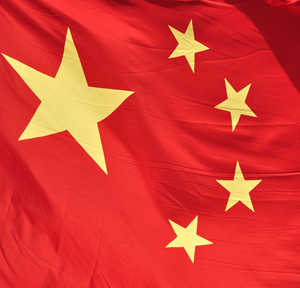Asset Management
BlackRock Pushes Into China, Soros Warns Of "Tragic Mistake"

The world's largest investment manager is pushing into the onshore mainland China market, and a number of other Western firms are considering making the same move. A question is whether such strategies work at a time when Western nations are often at odds with Beijing over the latter's policies.
BlackRock has raised
about $1 billion for the first-ever mutual fund solely run by a
foreign firm that is allowed to sell to Chinese individuals, the
Wall Street Journal and others reported
yesterday.
On August 30, BlackRock launched a set of mutual funds and other
investment products for Chinese consumers.
The launches of such funds stir controversy over the extent to
which Western firms should do business with China at a time when
Beijing has been at odds with the US and Europe over human
rights, the national security crackdown last year in Hong Kong,
and other topics.
The BlackRock China New Horizon Mixed Securities Investment Fund
received more than 111,000 orders from individual investors in
China during a five-day marketing period last week, the report
said, citing a statement. The fund will allocate 60 per cent to
95 per cent of assets in stocks and depositary receipts in such
sectors as new energy, consumption, digital economy, healthcare,
education and advanced manufacturing, it said.
BlackRock told this publication that the first mutual fund of its
China wholly-owned fund management company was officially
established on Sept 7.
“We are very proud of achieving this milestone for our China fund
management business, and are grateful for investors’ overwhelming
support. As a fiduciary to clients, we are committed to helping
investors improve their financial well-being. We are excited to
be able to contribute our investment and risk management
expertise to help make investing easier and more affordable for
Chinese investors,” Rachel Lord, BlackRock’s Chair and Head of
Asia Pacific, said in a statement emailed to this news
service. Chi Zhang, BlackRock fund management’s general
manager, added: “We are very pleased with the official
establishment of our first mutual fund in China. The support and
trust from our investors and distribution partners have been
extremely encouraging. We are committed to bringing long-term
investment opportunities for Chinese investors, leveraging our
track record in investing in A-shares and our expertise in
investment and risk management to help more investors improve
their financial well-being.”
China has been lifting restrictions on foreign wealth managers,
such as ending restrictions on US asset managers selling mutual
funds to individual investors. BlackRock, which oversees more
than $9.5 trillion in assets and is by far the world’s largest
fund manager, was the first firm given full approval to sell its
own mutual funds to Chinese individuals.
Other firms could follow BlackRock’s lead. Fidelity International
was granted preliminary approval last month; Neuberger Berman and
VanEck are seeking clearance for their China mutual fund
operations. As recently as September 3, Paris-listed BNP
Paribas was reportedly preparing for its asset management arm to
form a wealth management venture with a unit of Agricultural Bank
of China.
Soros, writing in the WSJ, has described BlackRock’s
push into the Chinese market as a “tragic mistake”.
The Hungarian-born financier, whose business is now run as a
family office and no longer oversees outside money, said
BlackRock's dealings in the Chinese economy will not only lose
money for its clients in the long run but will also inflict
damage on the national security of the US and other
democracies.
Soros wrote on September 6: “BlackRock takes its responsibilities
for its clients’ money seriously and is a leader in the
environmental, social and governance movement. But it appears to
misunderstand President Xi Jinping’s China. The firm seems to
have taken the statements of Mr Xi’s regime at face value. It has
drawn a distinction between state owned enterprises and privately
owned companies, but that is far from reality. The regime regards
all Chinese companies as instruments of the one-party state.
“This possible misunderstanding could explain BlackRock’s
decision, but there may be another explanation. The profits to be
earned from entering China’s hitherto closed financial markets
may have influenced their decision.
"The BlackRock initiative imperils the national security interests of the US and other democracies because the money invested in China will help prop up President Xi’s regime, which is repressive at home and aggressive abroad. Congress should pass legislation empowering the Securities and Exchange Commission to limit the flow of funds to China. The effort ought to enjoy bipartisan support," he added.